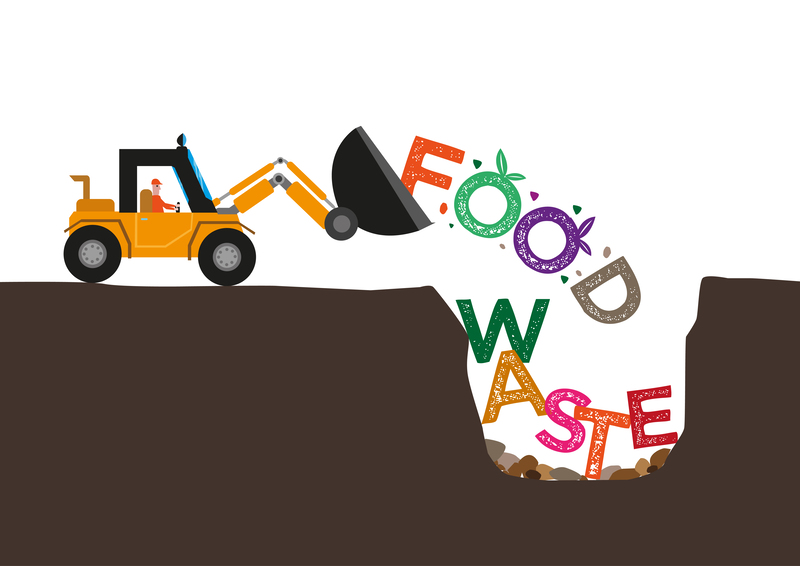Keep Costs Down When Dealing with Bulky Waste Items
Managing and disposing of bulky waste items can be a costly and daunting task for many households, landlords, property managers, and even businesses. From old sofas and mattresses to refrigerators, washing machines, and unwanted furniture, these bulky items require different handling and disposal processes compared to regular garbage. In this comprehensive guide, you'll discover cost-effective strategies and insider tips to keep costs down when dealing with bulky waste items while staying compliant with local regulations and adopting sustainable practices.
Understanding Bulky Waste and the Associated Costs
Bulky waste refers to large household items or commercial items that are too big or heavy for regular waste collection services. Examples typically include:
- Furniture: sofas, beds, chairs, tables, wardrobes, etc.
- White goods: fridges, freezers, washing machines, ovens, etc.
- Mattresses and carpets
- Large garden waste: trees, branches, and fencing materials
- Large electronic waste: televisions, computers, printers, etc.
The main expenses in disposing of bulky waste include collection fees, landfill charges, recycling costs, and sometimes penalties for improper disposal. Knowing how to keep bulky waste removal costs low can save families and businesses a substantial amount of money each year.

Top Strategies to Keep Bulky Waste Disposal Costs Low
1. Plan Ahead and Minimize Waste
Before discarding bulky items, always consider whether disposal is the only option. Frequently, items can be reused, donated, repurposed, or even sold, extending their usable life and reducing overall waste as well as disposal fees. Some useful ways to minimize bulky waste:
- Repair and reuse furniture and appliances whenever possible
- Donate usable items to local charities, shelters, or thrift stores
- Sell high-value or collectible items online or at garage sales
- Offer furniture or appliances to friends, relatives, or neighbors
Donating or giving away bulky waste not only keeps costs down but also benefits the community and environment by avoiding landfill.
2. Compare Local Council and Private Bulky Waste Collection Services
Most municipalities offer a bulky waste collection service for residents, usually for a small fee or in some cases, free of charge for a limited number of collections per year. However, these services often have restrictions about the type, size, and quantity of items accepted and may require you to book collections in advance.
- Check your local council's website for their bulky waste policies, pricing, schedules, and accepted items.
- See if the council offers any free disposal days or amnesty programs for large or hazardous items.
- Compare costs between local council collection services and licensed private waste removal companies.
Private companies may offer more flexibility and faster service but often at a higher price. Getting multiple quotes and comparing reviews can help you choose the most cost-effective option.
3. Use Skip Hire Services Wisely
Hiring a skip is a popular option for households or businesses disposing of multiple bulky waste items at once. To keep costs down when using skip hire:
- Estimate your waste volume accurately to avoid paying for a larger skip than necessary.
- Share skip space with neighbors or friends to split the cost.
- Ask about additional charges for prohibited items, overloading, or extended hire periods.
- Sort your waste to include only permitted items, reducing the risk of costly penalties.
Proper planning can mean significant savings on skip hire for bulky items.
4. Take Advantage of Recycling and Reuse Centers
Many communities operate Household Waste Recycling Centers (HWRC) where residents can drop off certain kinds of bulky waste items for recycling or responsible disposal. Benefits include:
- Often free or low-cost disposal for residents
- Special containers for furniture, wood, metal, electronics, and white goods
- Some centers assist with heavy lifting - call ahead for availability
If you have a vehicle capable of transporting your bulky waste, using a recycling center can greatly reduce your disposal costs.
5. Book a "Man & Van" Service for Smaller Loads
For those without a large volume of bulky items, hiring a man and van waste clearance service can be much cheaper than a skip or council collection. These services typically charge based on the amount and type of items collected.
- Only pay for the items you remove - ideal for clearing single pieces or light loads
- Get quotes from several local providers to find competitive pricing
- Check that the service is fully licensed and insured to avoid fly-tipping risks
This is perfect if you need a fast response and want to avoid the hassle of transporting bulky items yourself.
Reducing the Frequency (And Cost) of Bulky Waste Disposal
1. Buy Responsibly and Choose Modular Furniture
Smart purchasing decisions can help limit your long-term bulky waste. Investing in quality, modular, or multi-use furniture is not only more sustainable but often recyclable or easier to repair when damaged.
- Select modular furniture that can be taken apart
- Opt for reusable or upgradable appliances
- Avoid buying excess or trendy items destined for short-term use
2. Upcycle and Repurpose Bulky Items
With a little creativity, many large items can find new life as something useful or decorative:
- Turn an old ladder into a bookshelf
- Use wooden pallets for garden seating or planters
- Transform a broken table into a unique desk
This approach is not only economical but also adds a unique touch to your home.
3. Schedule Group Cleanouts and Junk Removal Events
If you live in a block of flats, housing estate, or manage multiple properties, organizing a joint cleanout or junk removal event can help spread the disposal costs among several households. Larger loads often qualify for bulk rates from removal companies, making it much more affordable for everyone involved.
- Coordinate with neighbors or tenants for maximum participation
- Negotiate a group rate with local providers
- Schedule collection for convenient days so everyone can contribute
Legal and Environmental Considerations: Avoiding Fines and Hidden Expenses
Improper disposal of bulky waste can result in hefty fines, legal issues, and environmental harm. To keep costs down and avoid hidden charges:
- Do not dump bulky waste illegally ("fly-tipping") - fines and cleanup costs can be thousands of dollars or pounds.
- Always use licensed waste carriers if hiring removal services.
- Keep receipts or documentation for all disposed items for proof of lawful disposal.
- Follow local council rules for hazardous or unusual items (e.g., mattresses, fridges with CFCs, electronics).
Prioritizing responsible disposal not only helps keep bulky waste costs down but also benefits the wider community.
FAQ: Keeping Costs Low with Bulky Waste
What bulky items cost the most to remove?
Generally, items requiring special handling or containing hazardous materials, such as fridges, freezers, air conditioners, or mattresses (due to fire treatment chemicals) have the highest disposal charges. Always ask your carrier up front about extra costs.
Are there ways to get rid of bulky waste for free?
- Check for council collection allowances or "free item" pick-up days
- Donate items to charities that offer free collection
- Offer items through online community networks (e.g., Freecycle, Facebook Marketplace)
- Bring items to local recycling centers that accept them from residents without charge
Can I save money by dismantling items myself?
Yes! Dismantling bulky objects into smaller parts can help you fit more into your regular waste bins or a smaller skip. Just ensure you follow safety precautions and local rules about acceptable waste types.

Best Practices for Sustainable, Affordable Bulky Waste Disposal
- Sort and separate materials (e.g., wood, metal, fabric) to maximize recycling and minimize landfill charges.
- Avoid last-minute clearouts - planning ahead allows you to find the most affordable and legal disposal options.
- Collaborate with neighbors or community groups for greater savings.
- Research local charities or social enterprises that refurbish and reuse furniture and white goods.
- Always keep proof of correct disposal to avoid fines.
Conclusion: Smart, Cost-Effective Solutions for Bulky Waste
Disposing of bulky waste items doesn't have to break the bank. With a little advance planning, creative reuse, and knowledge of low-cost collection and recycling options, you can keep costs down while decluttering your property. Remember to recycle, donate, sell, or upcycle items whenever possible. Only pay for waste disposal as a last resort, and always work with licensed, reputable providers.
Implement these strategies to not only save money but also reduce landfill, cut carbon emissions, and contribute positively to your local environment.
For more tips and the latest information on how to keep costs down when dealing with bulky waste items, subscribe to our newsletter and stay ahead of waste management trends!
